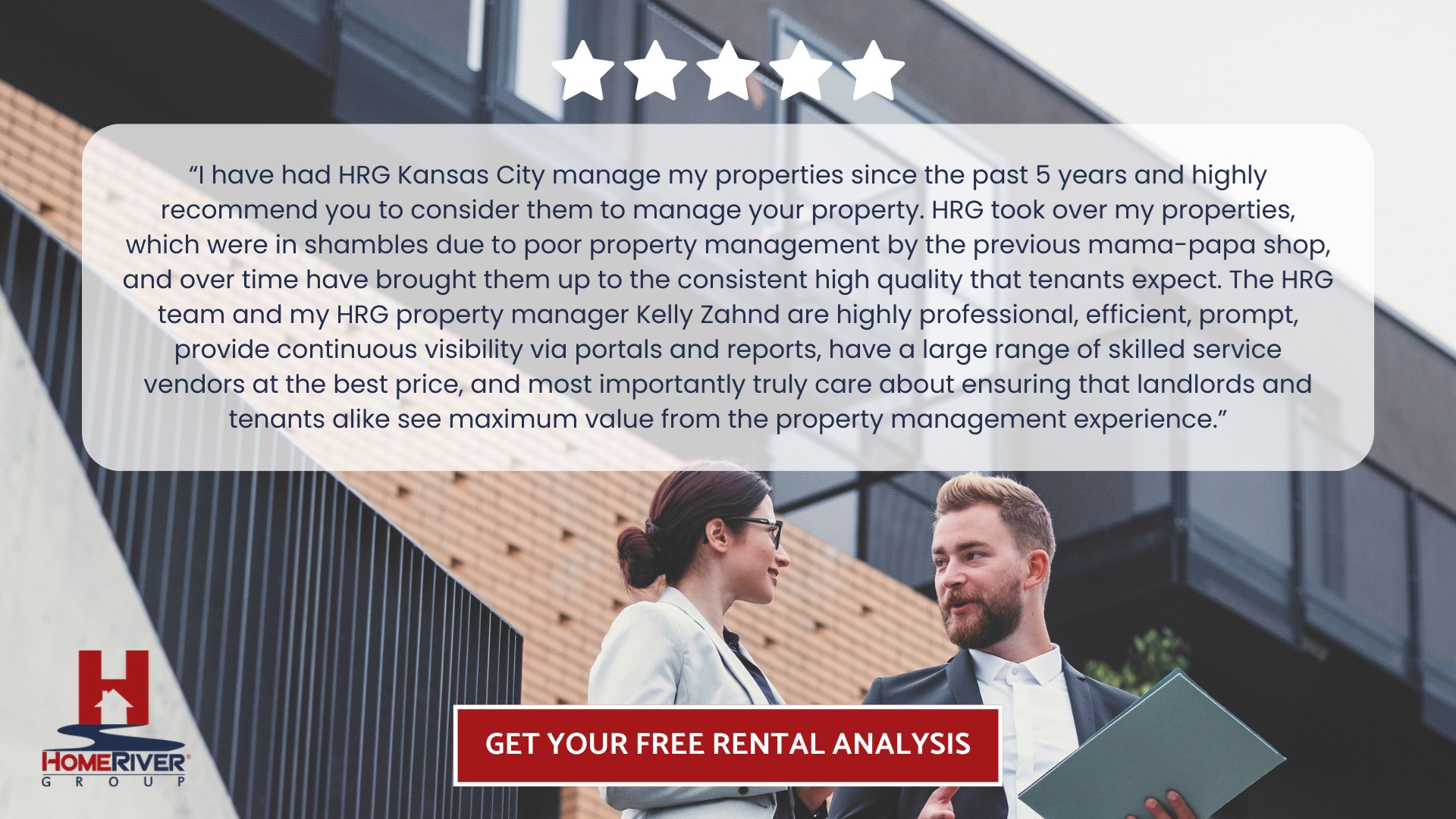
At HomeRiver Group, we understand the complexities and nuances of managing properties across multiple states. Our unique combination of local market expertise and centralized management operations puts us in a prime position to efficiently guide you through these challenges.
As a landlord, addressing tenant issues effectively while maintaining a professional demeanor is crucial. Whether you're dealing with disruptive behavior, late payments, or breaches of lease agreements, how you handle these situations can have a lasting impact on your property’s reputation and peace of mind.
In this article, we will explore practical strategies for handling difficult tenants, including effective communication techniques, legal considerations, conflict resolution methods, and the role of professional property management in ensuring a smooth landlord-tenant relationship.
Understanding Different Types Of Difficult Tenants
Navigating the complexities of tenant-landlord relationships often requires understanding and identifying various tenant behaviors. Recognizing these behavioral patterns can help you address issues more effectively and maintain a harmonious rental environment.
These tenants consistently delay rent payments, creating cash flow issues and potential financial strain on your property investments. Communication is key; discussing their financial situation upfront might provide insight into the root cause of their payment issues. Additionally, a clear, fair late fee policy can motivate timely payments.
Some tenants may neglect property rules or lease agreements, resulting in noise complaints, unauthorized pets, or subleasing arrangements. To address this, ensure your lease agreements are comprehensive and communicated clearly. Regularly reinforce these agreements and promptly address breaches to maintain order and protect your investment.
Tenants who neglect property upkeep can lead to extensive damage and costly repairs. Conducting regular property inspections and encouraging open communication can help you identify issues early. Providing clear guidelines on property care and maintenance responsibilities can foster a sense of accountability among tenants.
Some tenants may frequently raise disputes about various matters, from maintenance issues to neighbor relations. Listening to their concerns and responding professionally is essential, ensuring all communications are documented. Setting boundaries and offering solutions can significantly reduce friction and foster a positive landlord-tenant relationship.
Mediation Techniques For Conflict Resolution
Dealing with difficult tenants can be one of the most challenging aspects of property management. However, effective mediation techniques can turn potentially adversarial situations into opportunities for resolution and relationship-building.
At HomeRiver Group, we emphasize a professional approach that balances tenant satisfaction with landlords' peace of mind. Here are some key techniques to consider:
Active Listening
One of the most powerful tools in mediation is simply listening. Allow tenants to voice their concerns without interruption. This helps understand their perspective and demonstrates respect and openness, essential ingredients for conflict resolution.
Neutral Communication
Adopt a neutral tone when discussing issues. Avoid using language that might seem accusatory or defensive. Instead, focus on facts and express empathy for the tenant's situation, which can help de-escalate emotions and foster an environment of mutual respect.
Collaborative Problem Solving
Encourage tenants to participate in finding solutions to the issues at hand. By involving them in the process, you empower them and increase the likelihood of reaching a satisfactory agreement for both parties.
Formal Mediation Sessions
When informal discussions do not lead to a resolution, consider organizing a structured mediation session. This may involve a professional mediator or a neutral third party from HomeRiver Group’s experienced team who can provide impartial guidance and help facilitate an agreement.
Setting Boundaries And Follow-Up
Once a resolution has been reached, clearly outline both parties' agreed-upon actions and responsibilities. Ensure there is a follow-up procedure to monitor adherence to these agreements, reinforcing accountability and maintaining a healthy landlord-tenant relationship.
By applying these mediation techniques, landlords can maintain a harmonious environment within their rental properties. Whether managing short-term or long-term rentals, ensuring clear communication and structured resolutions helps create stability, reduces turnover, and preserves the value of your investment.
Tips For Screening Tenants To Avoid Issues
Screening tenants thoroughly is your first line of defense in avoiding potential problems. Here are some professional tips to enhance your tenant screening process:
Implement a Comprehensive Application Process: Ensure your rental application form asks for all necessary details, such as employment history, rental history, and personal references. This data will help paint a picture of the prospective tenant's reliability and financial stability. If you're wondering how to find a renter who meets your criteria, having a well-structured application process is a critical first step.
Conduct Rigorous Background Checks: Use reliable services to perform credit checks and background screens. This step is critical to verify creditworthiness and identify any previous legal issues or evictions, which could be red flags for future management difficulties.
Communicate Expectations Clearly: Be transparent about your property's rules and expectations during the application process. Communicate lease terms, maintenance responsibilities, and community guidelines to ensure prospective tenants understand and agree.
Verify Rental History: Contact previous landlords to gain insight into the applicant's behavior as a tenant. Ask about their payment punctuality, property upkeep, and whether there were any disputes or issues during their rental period.
Analyze Financial Stability: Verify employment status and income documentation to ensure prospective tenants have a reliable source of income. A general rule of thumb is that the tenant's income should be at least three times the rent amount to ensure affordability.
Trust Your Instincts: While data and references are crucial, trusting your instincts during the interview can also provide valuable insights. Pay attention to how open and honest they are about past issues and whether they align with your property's community standards.
Integrating these methods into your tenant screening strategy can reduce the likelihood of encountering difficult tenants and foster a harmonious landlord-tenant relationship. At HomeRiver Group, we prioritize exceptional service and local expertise to ensure your property is managed with the utmost care and professionalism.
Legal Steps For Lease Violations
Addressing lease violations promptly and professionally is essential for maintaining a harmonious landlord-tenant relationship. As a property owner, understanding and utilizing the appropriate legal steps can help resolve such issues effectively and maintain the integrity of your property.
Here's a step-by-step guide to help you navigate this process:
Review The Lease Agreement
Begin by thoroughly reviewing the lease agreement, which should clearly outline the rules and expectations for both parties. Understanding these terms helps identify the specific violation and appropriate action. At HomeRiver Group, we ensure that these agreements are comprehensive, protecting both the property owner and tenant. If you're choosing a property management company, it's important to work with one that prioritizes strong lease agreements and proactive enforcement.
Communicate Clearly
Address the issue directly with your tenant before taking legal action. A clear, open conversation can sometimes resolve misunderstandings and allow the tenant to rectify their behavior voluntarily. As we at HomeRiver Group emphasize, professionalism and respectful communication are key.
Document Everything
Documentation is crucial in case further legal action is necessary. Keep detailed records of all incidents, including dates, times, and correspondences. This can include written notices, emails, or notes from phone conversations. At HomeRiver Group, we advise maintaining an organized system for storing these documents to support your case if escalation is needed.
Provide A Formal Notice
If informal attempts at resolution fail, issuing a formal notice can emphasize the seriousness of the violation. Ensure this notice complies with local laws, as tenant notice regulations vary across states. This notice should clearly state the violation, the consequences if not corrected, and the timeframe allowed for resolution.
Seek Legal Counsel
Consult a legal professional in complex situations or if your tenant violates lease terms after formal warnings. An attorney specializing in property management can advise on your next steps, including possible eviction proceedings if necessary. HomeRiver Group can assist in facilitating these consultations and provide access to vetted legal expertise.
Properly handling lease violations protects your investment and maintains a respectful, professional environment.
The Role Of Law Enforcement In Tenant Issues
Dealing with difficult tenants can sometimes escalate to situations where law enforcement becomes a necessary partner in resolving issues. As a landlord, it's crucial to understand when and how to involve the authorities while maintaining professionalism and following legal protocols.
Here are a few scenarios where law enforcement might play a vital role:
Threats Or Violence
If a tenant exhibits threatening behavior or becomes violent, it's imperative to prioritize safety above all. In such cases, contacting law enforcement promptly can help diffuse a potentially dangerous situation and provide a record of the incident for future reference. Before signing a lease, landlords should consider proactive screening strategies and key questions to ask a property management company to ensure they work with professionals who can handle high-risk situations effectively.
Property Damage
Intentional or repeated property damage might warrant involving authorities. Police reports can be crucial in documenting damages, which may assist in recovery efforts, whether through insurance claims or legal proceedings.
Illegal Activities
Discovering illegal activities on your property, such as drug manufacturing or distribution, necessitates immediate law enforcement intervention. As a landlord, you bear responsibility for maintaining the legal and safe operation of your property, and reporting such activities is part of fulfilling that duty.
Eviction Assistance
In some jurisdictions, law enforcement may assist in enforcing eviction orders. Understanding your rights and local laws is essential to ensure the eviction process proceeds smoothly and legally.
Final Thoughts
As a landlord, maintaining a balance between empathetic understanding and firm management is crucial to ensuring a harmonious landlord-tenant relationship. You can handle most tenant challenges smoothly by adopting proactive communication, setting clear expectations, and leveraging experienced property management assistance from industry leaders like HomeRiver Group.
At HomeRiver Group, we provide the tools and insights needed to manage tenant relationships while keeping their properties running efficiently and effectively. From customized management plans to hands-on support, our services are designed to enhance your property management experience. By approaching each tenant interaction professionally and consistently, landlords can foster long-term positive relationships, preemptively address potential issues, and keep tenant turnover low.
Let HomeRiver Group empower you with the resources and support necessary to handle any tenant challenge, ensuring your property is our priority.
Read also:
Landlord Rescue: Signs You Need to Hire a Property Management Company
Renter Screening Questions: The Ultimate Guide To Finding The Right Tenants
How To Find A Renter: Best Strategies For Filling Your Rental Property Fast
Frequently Asked Questions About How To Deal With Difficult Tenants
What is the best way to approach a difficult tenant?
Dealing with difficult tenants requires professionalism and a calm demeanor. Begin by opening a line of communication to understand their perspective. Clearly outline expectations and rules in a friendly yet firm manner. It’s important to document conversations and agreements to ensure transparency and accountability.
How can I legally handle a tenant who consistently pays rent late?
Consistent late rent payments can be a challenge. Review the lease agreement for any specified penalties regarding late payments. Use this as a basis for communication. Send written reminders and charge late fees as per your contractual terms. If the behavior persists, consider seeking legal advice for potential eviction processes per local laws.
What documentation should I keep when dealing with a problematic tenant?
Keep records of all correspondences, including emails, letters, and phone call logs with dates and times. Document all incidents, complaints, and attempts to resolve issues. Maintain copies of the lease agreement and any notices served, as these can be crucial if legal action becomes necessary.
Can I evict a tenant for being difficult?
Eviction is generally a last resort and should be handled legally and professionally. Being “difficult” isn’t enough; there must be a breach of lease terms, such as non-payment, illegal activities, or serious damage to the property. Consult legal professionals and follow due process strictly according to your state laws.
How do I handle noise complaints from other tenants?
First, communicate with all parties involved to gather details. Address the noisy tenant amicably, highlighting community living expectations. Offer potential solutions like soundproofing. If the noise persists, consider enforcing noise violation penalties or involving a mediator to resolve.
What are the signs of a potentially difficult tenant before leasing?
Watch out for signs such as incomplete rental applications, reluctance to provide references, a history of frequent moving, or past eviction records. Conduct thorough background and credit checks. Interview prospective tenants to gauge their suitability and observe their demeanor.
How can I de-escalate a tense situation with a tenant?
Remain calm and listen actively to the tenant’s concerns. Avoid confrontational language and offer solutions to issues presented. Emphasize collaboration by involving them in resolving disputes, thus fostering a sense of partnership.
What are my rights as a landlord when dealing with property damage?
As a landlord, you have the right to recover costs for damages beyond normal wear and tear. Review the lease for clauses on tenant responsibilities regarding property care. Document the damage through photographs and detailed records. You may also use the tenant's security deposit to cover repairs, provided it is handled in compliance with state laws.










